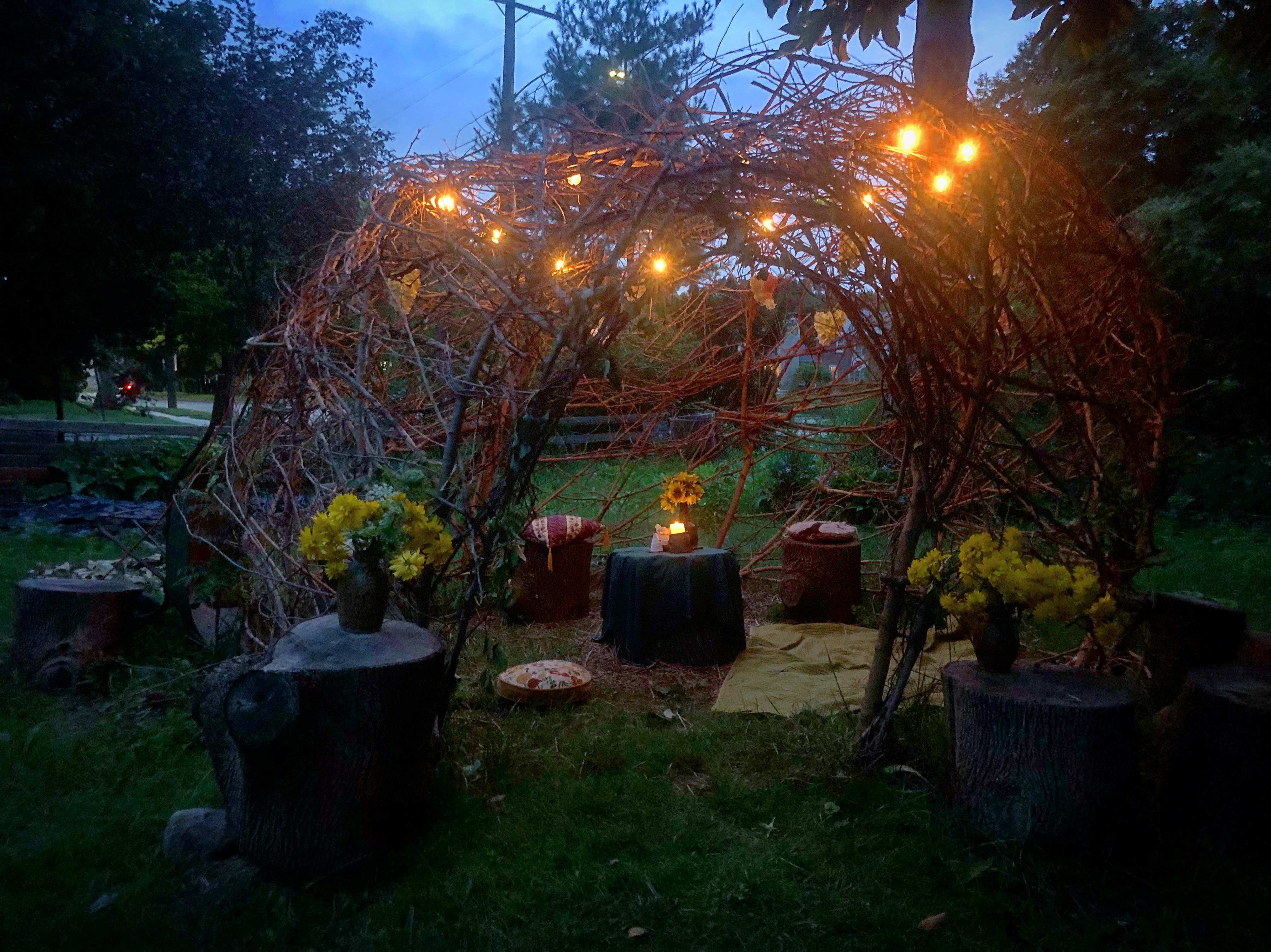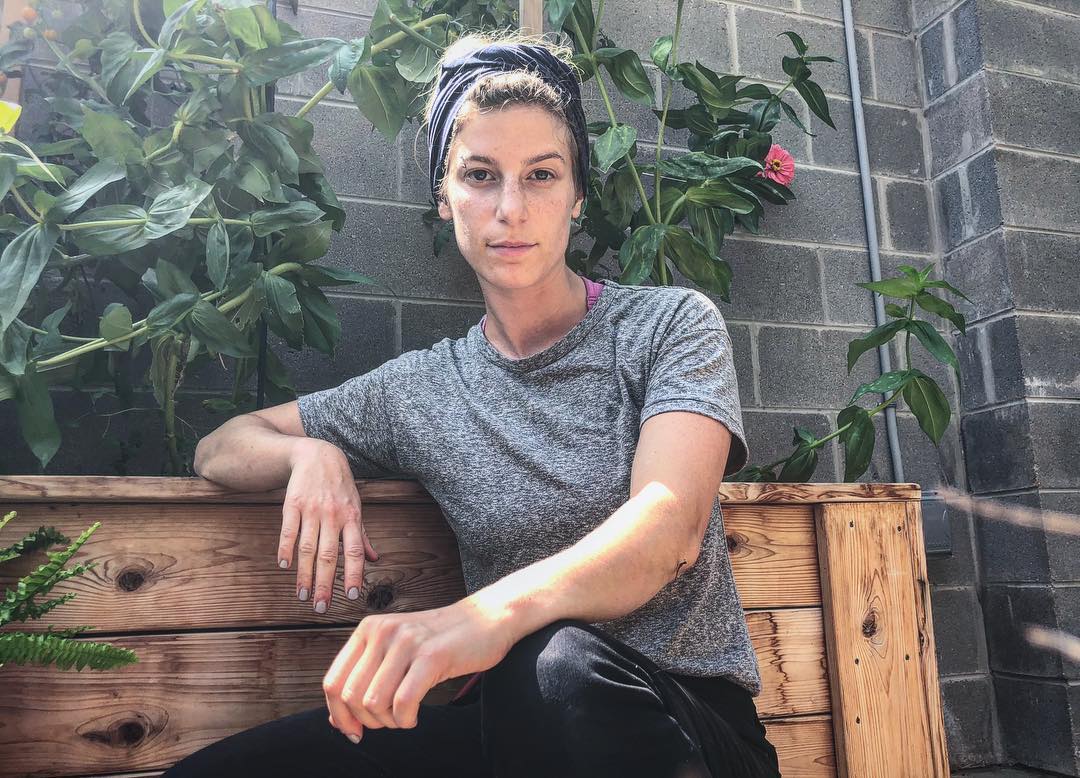Reclaiming Sukkot
By Jewish Federation of Metro Detroit
August 31, 2018
As the moon waxes into fullness and the growing season reaches its end, we celebrate Sukkot. This holiday takes us out of this modern time, with its comforts and complexities, through rituals that seem downright witchy, if not counter-cultural. We are called to build a Sukkah–a temporary dwelling place with three walls and a ceiling through which you can see the stars. For a week, we eat, sleep and pray in these structures, inviting guests to join us and visiting other Sukkot.
I grew up with limited connection to Judaism and its traditions. I did the bare minimum to get through Hebrew School and my bat mitzvah, without much thought as to how these teachings could connect to my modern life. As an adult, I’ve had many mentors, teachers, and friends who have shown me the many connections between our tradition and modern social and environmental issues.
Through my work as Giving Gardens Director at Yad Ezra, I continue to do this work as I grow food for our food pantry clients and put agricultural practices into a Jewish context for volunteers and program participants. My work involves exploring the ways our food system contributes to local food insecurity and our responsibility as Jews to heal our world. Our modern ways involve overproduction to the extent of extreme waste and harm, while leaving folks like Yad Ezra’s clients without access to this bounty. How can this persist?
Often, I return to the same concern — a disconnectedness from each other, our food source, and the natural world. The wisdom of Sukkot directly contributes to a solution.

Beginning with the building and decorating of the Sukkah, some of us are working outside more than we have all year. Together, we bring representations of where we are in place and season into our temporary outdoor homes. Some gather fallen branches and flowers, seek out native corn and gourds, and prepare meals full of seasonal foods. This is our tradition’s way of ensuring that we stay connected to the land with a sense of gratitude, and that we do this in community, deepening our relationships with friends and neighbors through shared meals and collaborative building efforts. It’s how we as a diasporic, wandering people lean on tradition and ritual to root ourselves in space and time.
For most of us, observing this holiday ignites a radical departure from our normal lifestyle. To participate involves leaving the comforts of locking doors, a solid roof, and privacy. Instead, we return to the wilderness of our backyards. Emerging from our individual homes, we briefly leave behind the conveniences and independence that can contribute to outright isolation.
We remove ourselves from our normal, tech-heavy lives and reconnect with our basic human needs. This experiment is our opportunity to remember who we are, to care for our community, and to appreciate the natural world. At least for this week, we opt for falling asleep under the stars, celebrating the season’s bounty with family and friends, and praying for rain.
That’s another large part of what this harvest celebration is about: praying for rain to ensure a bountiful next growing season. Even in our wintery region, fall rains are so important for the seeds that fall from dried flowers and rotten fruit. The rain tucks these seeds into the soil to begin their period of dormancy before blooming in the spring. Many would have relied on this rain to sustain crops and thirst through a dry or frozen season. Even with our modern water systems, we face reasons to pray for what is largely taken for granted – safe and abundant water.
We gather all forces to make this prayer for water as powerful as possible. The etrog and lulav, integral symbols and tools of this holiday, provide fragrance, sound, and movement, keeping us present in our bodies as we shake them. They encircle us as we move them in the four directions around us, above and below us, and inward towards us. This totals seven directions, a powerful number in Judaism representing the wholeness of cycle, like the seven days of the week, the seven years of working and resting the land during the shmitah year, and the seven cycles of seven years, culminating in the jubilee. The wholeness of this ritual mirrors that of the self.
This year, we can look at Sukkot in a new way through this ancient, agricultural lens. Visit a new Sukkah, build one of your own, or support a community Sukkot event. Engage with its wisdom and reconnect to all that gives us life, and have a new moment with an ancient tradition.

